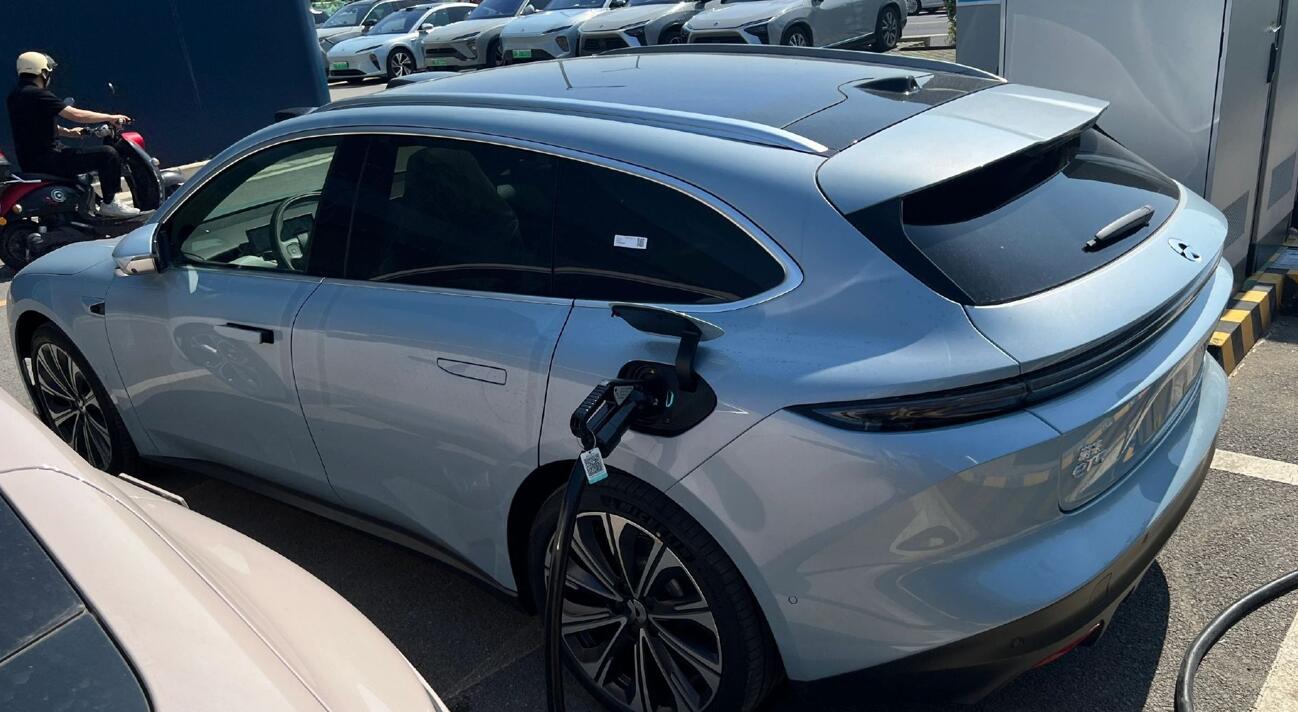NIO launched the new ES6 on May 24, though the model is likely still in the process of climbing capacity and not contributing much to sales.

Li Auto (NASDAQ: LI) kept sales strong last week, while its two local peers, NIO (NYSE: NIO) and XPeng (NYSE: XPEV), remained weak.
With 6,600 units sold in the week of May 29 to June 4, Li Auto continues to lead the pack among China's new car-making brands, the company said today on Weibo.
That's far more than other new car brands and more than the second and third places combined, Li Auto said.
Li Auto has delivered more than 20,000 units for three consecutive months, and this month the company will aim to reach its 30,000-unit monthly sales target, it added.
Li Auto didn't explain what the weekly sales are based on, but apparently, they are insurance registrations. The company had suspended sharing those numbers in May, but has now resumed sharing them.
All of Li Auto's models currently on sale are extended-range electric vehicles (EREVs), essentially plug-in hybrids that are targeting a broader market, including the five-seat Li L7 and the six-seat Li L9 and Li L8.
NIO and XPeng, on the other hand, offer only purely electric models and face a growing but much smaller market space.
NIO sold 1,700 units last week, according to figures shared by Li Auto. This is slightly higher than the previous week's 1,600 units.
Last week included the last three days of May and the first four days of June. The insurance data represents the number of vehicles registered in China.
NIO launched the new ES6 on May 24, although the model is likely still in the process of climbing capacity and thus still not contributing much to sales.
The electric vehicle (EV) maker delivered 6,155 vehicles in May, down 7.55 percent from April and down 12.37 percent year-on-year, according to data released on June 1.
NIO will finish climbing capacity for the new ES6 in June to deliver vehicles as early as possible, Jim Wei, the company's senior vice president of user operations, said in announcing May delivery figures on the NIO App on June 1.
In a research note sent to investors yesterday, Morgan Stanley analyst Tim Hsiao's team said that NIO's overall new order intake hit a year-to-date high thanks to the launch of the new ES6.
Tesla (NASDAQ: TSLA) sold 14,500 units last week, up from 12,800 the week before, according to figures shared by Li Auto.

Tesla sold 77,695 China-made vehicles in May, including those exported, data released yesterday by the China Passenger Car Association (CPCA) showed.
This was up 2.44 percent from 75,842 vehicles in April and up 141.55 percent from 32,165 vehicles in the same month last year.
XPeng (NYSE: XPEV) sold 2,100 units last week, unchanged from the previous week.
The company delivered 7,506 vehicles in May, down 25.87 percent year-on-year, but up 6.03 percent from April.
XPeng will begin pre-sales of the G6, the new SUV designed to compete with Tesla's Model Y, on June 9.
Zeekr sold 2,100 units last week, up from 1,900 units the week before.
The company delivered 8,678 vehicles in May, up 100.42 percent from 4,330 in the same month last year and up 7.12 percent from 8,101 in April.
This is the fourth consecutive increase in monthly deliveries for Zeekr, which will begin deliveries of its third model, the Zeekr X, later this month.
Leapmotor sales were 3,400 units last week, down from 3,600 the week before. Neta was 2,900 units last week, up from 2,100 the week before.
https://cnevdata.com/2023/06/06/china-nev-weekly-insurance-registrations-0606/
The post China NEV insurance registrations for week ending Jun 4: Tesla 14,500, Li Auto 6,600, NIO 1,700 appeared first on CnEVPost.
For more articles, please visit CnEVPost.














